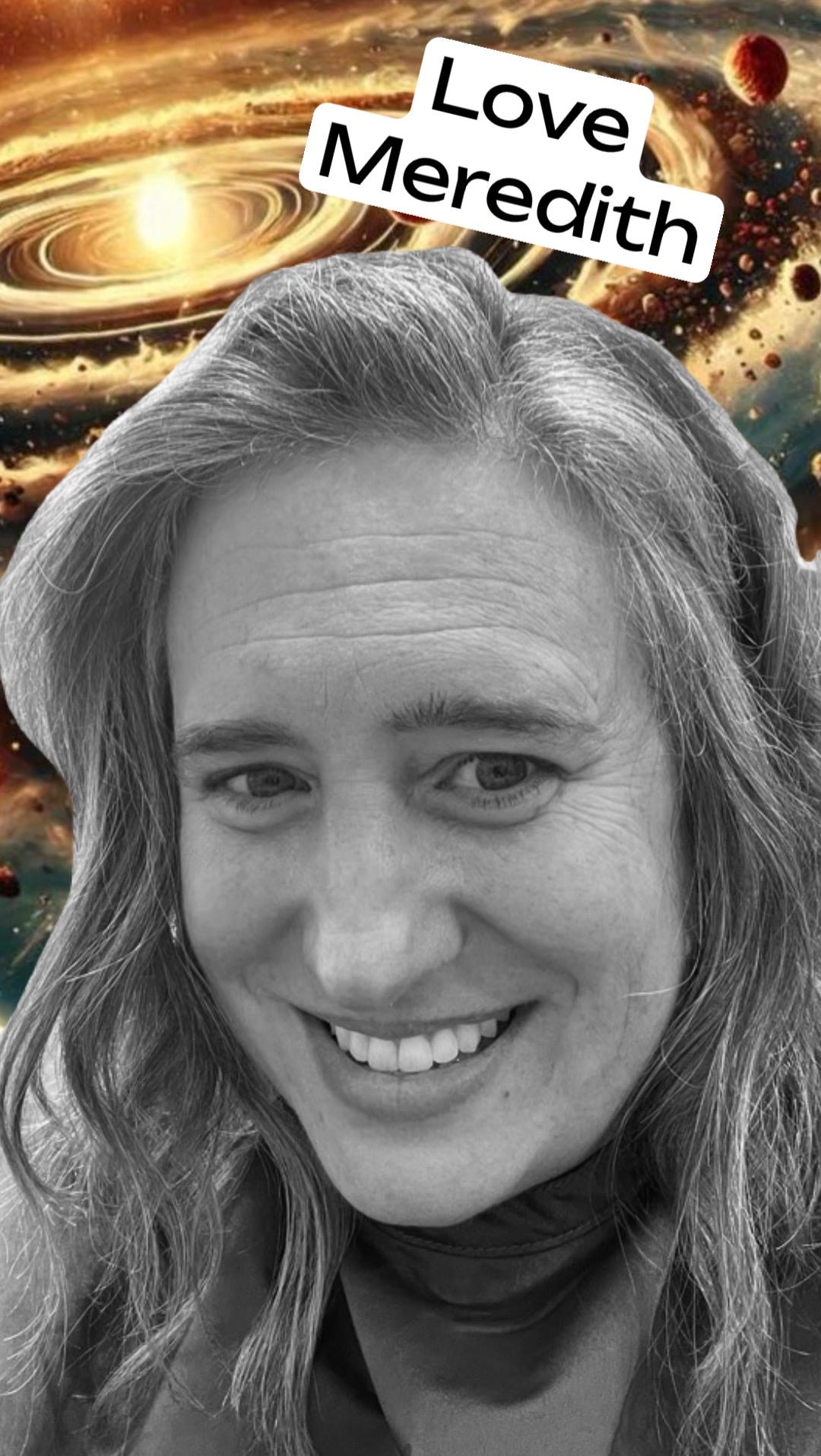
Dear Voyagers,
The past few months have brought rapid acceleration to the number of topics I’ve wanted to share with you. “I can’t believe people don’t know this!” I say to myself, furiously typing away about Dr Shapiro’s lucky discovery of EMDR therapy or the particular chemical pathways that explain why introverts remember arguments longer than extroverts do. In moments like this, the world of mindbody science fills me with profound curiosity and admiration. I’m an astronaut floating in space, gazing back at our world with awe-filled eyes.
I don’t feel like a powerful astronaut, however, when I’m struck by how little consensus there is about how the human mind works or when I realize how nascent this area of study really is. Instead of awe, moments like these are filled with a fear of the futility of my efforts. I’m just a speck of dust being blown from one school of thought to another.
A few days ago, in my newly created Beautiful Voyager Wayfaring Facebook group, a fellow Voyager named Sandy Edwards shared a video about implicit and explicit memory from Austin-based psychologist Dr Tori Olds. Watching it made me feel like both an astronaut and a speck at the same time. Here’s why:
“Until about 15 years ago scientists believed that implicit memory couldn't be changed. Therefore our field looked for ways to override or control that implicit learning. Forms of therapy like CBT were created to teach people how to use logic or develop a logical idea and try to control or override the more implicit knowing so that it wouldn't have so much control and they could regulate their emotions and behaviors more effectively. That creates something called incremental change which is a good thing. However, now we know we can actually go into the implicit learning or memory itself and update it. When we do that we get transformational change.”
My astronaut response: “I knew it! We can reach the unconscious mind! Look at how incredible it is that someone is articulating what’s possible! I would love to learn about the link between implicit memory and EMDR work. What amazing possibility there is now that everyone agrees the unconscious mind can update itself.”
Not one to be outdone, my inner speck-of-dust self retorted, “Scientists are only just realizing we can access our unconscious learning? What the hell? Freud introduced the idea of the unconscious, preconscious, and conscious mind in 1896. Why has it taken this long for researchers to make this connection? Is this why I kept landing with talk therapists when I really needed mindbody science? Since I am a speck of dust, and not a scientific researcher, I guess I’ll just have to wait for someone to want to investigate implicit memory and mindbody science. Hope it happens in the next fifteen years.”1 (shaking head slowly)
The astronaut and the speck of dust: they’re both flying around in space, but one of them is filled with awe while doing so. With that in mind, let’s get into implicit learning.
What is implicit learning and why does it matter?
Implicit memory is a type of unconscious long-term memory. Like driving a car or riding a bike, implicit knowledge is acquired and used without conscious effort and can last a lifetime.2 In addition to skills like bike-riding, implicit memory can shape your beliefs about yourself, like how others perceive you. For example, if you grew up with a critical parent, you might believe others are criticizing you when they aren't. In this way, implicit beliefs can influence your behaviors and how you relate to others.
(Explicit memory, on the other hand, is the shorter-term intentional conscious remembering of facts. For example, I use explicit memory when I learned the capital of Ohio. Hello, Columbus!)
Up until a little over a decade ago, it was assumed that implicit memory could never be changed. The cake is baked, as the old cliche goes, as soon as you graduate from your childhood years. In the video I share below, however, Dr Tori Olds likens implicit memory to a zip file — once it’s encoded and sealed, it’s not as easy to access as explicit memory, but researchers now know it is possible.
And this is where things get very exciting. If explicit memory approaches to mental health treatment lead to incremental change, the potential for implicit memory treatment suggests, as Dr Olds says, “transformational change.”
Think of it this way: If explicit memory is the only path to changing how you think and feel, then the evidence-backed psychotherapeutic treatments in the early aughts had to take the explicit memory approach, helping people change their explicit knowledge through incremental conscious change.3 Like a second grade math teacher who forces you to memorize the multiplication tables by rote, cognitive psychologists helped people carve new conscious pathways into their thinking while bringing attention to unhelpful thought patterns. And thank goodness they did! Incremental change is much better than no change.
But, if what Dr Olds is saying here is correct — and from what I can find it is — there could be a whole world of transformational change on the horizon. Instead of a series of treatments that take only the explicit memory approach, as described above, researchers could now move on to the implicit memory approach to treatments. Imagine if we could unzip the implicit learning files that are stored deeply in our brain to help ourselves, for example, change the deep-rooted stories we tell ourselves that no longer serve us.4
Dr Olds goes on to explain:
“Now if you're thinking it sounds kind of scary, like Eternal Sunshine of the Spotless Mind, kind of thing, it's not like that at all. We're not trying to change people's autobiographical memory or their conscious recall of the events of their life. What's being targeted is unconscious beliefs about the nature of reality. That is accomplished first by activating the memory again and introducing an experience or information that disconfirms, or proves the belief held in that memory is incorrect. Once that happens there's about a five hour window where that memory becomes what is called labile, or open to being changed. In that time-frame, an additional experience can come and disconfirm that original perspective in a new format that more accurately maps to the reality of the present. There's all sort of deep therapies that really help people transform their implicit beliefs.”
I’m back to my awe-filled astronaut self: new kinds of deep therapies are exactly what have been helping me! In 2009, the year my daughter was born, researchers started to accept that our unconscious minds are not beyond reach. Imagine what might happen in the next 15 years with a new generation of researchers like Dr Tori Olds on the case, helping us regain our capacity for implicit learning. Like Hans Solo being released from a frozen carbonite state, our unconscious mind could awaken and give us another (better) story to tell. Imagine it!
I think it’s important for you, dear Voyager, to understand the tug-of-war that happens within me as I write this newsletter — I suspect it’s a similar tug of war that happens within many of us as we struggle to make sense of the complex world around us. I don’t claim to be a mental health scientist or a researcher. I’m a “connector of dots.” I’m trying to cobble together an updated point of view on healing based on the latest research I can find and the psychologists / scientists / researchers I connect with.
There are stories of people with dementia who are still able to access implicit memories until the end of their lives despite losing most of their explicit memory.
A great example is cognitive behavioral therapy which normalizes “disordered thought patterns in explicit memory to normalize disordered behavioral habit memory in implicit memory through the repetitive training in normalizing thought patterns, feelings, and behaviors.” Source
“I’ve always been scared of flying, and I always will be.” “Everyone is out to get me.” “I’m just not a creative person.” “I am unable to love.” etc etc.




